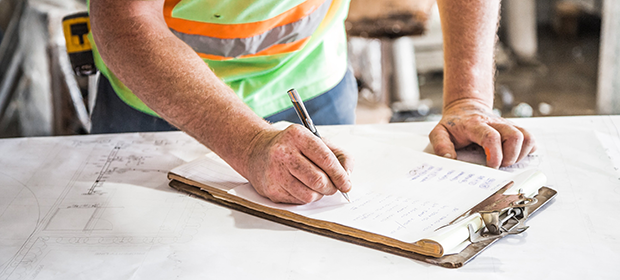The Domestic Reverse Charge for VAT, one of the most complicated pieces of tax legislation we’ve ever seen, was originally due to come into force in October 2019 and was then pushed back to a 2020 launch date. Earlier this year it was pushed back further to March 2021 due to the pandemic – so will it now be pushed even further, or scrapped altogether?

NB: You can find out more about the Domestic Reverse Charge here, including how contractors and subcontractors will be affected by this.
Introduced to tackle tax fraud, the reverse charge is of high importance to the government, especially when you consider current spending during the pandemic and the fact that construction industry tax fraud is estimated to tally up to qaround £100 million per year.
On the other hand, the industry has spent time and money to learn and implement this new legislation – no small feat! So to see this scrapped altogether would likely cause both frustration and relief from different members of the industry.
Despite the legislation’s complexities and industry bodies objections, it’s likely the Domestic Reverse Charge for the construction industry will go ahead. However, when it will become law is slightly less certain. The government is continually hinting at pushing back tax updates, even those which have already seen a delay due to the Covid-19 pandemic.
Introducing big changes like this that cause confusion and complexity are difficult at the best of times. We, however, are struggling through the worst of times. And while construction has been allowed to continue through this lockdown (so far), the industry will undoubtedly be rocked by the knock-on effects of the pandemic and economic downturn.
We will be keeping a close eye on announcements relating to the Domestic Reverse Charge as we move into 2021. If you’re expecting to be affected by the Domestic Reverse Charge and you are unprepared, or if you’d like to enlist the help of a chartered accounts, please get in touch with our team for a free consultation.

 © 2019 Warr & Co Chartered Accountants. Warr & Co Chartered Accountants is a member of The Institute of Chartered Accountants in England & Wales (ICAEW). Whilst the information detailed here is updated regularly to ensure it remains factually correct, it does not in any way constitute specific advice and no responsibility shall be accepted for any actions taken directly as a consequence of reading it. If you would like to discuss any of the points raised and / or engage our services in providing advice specific to your personal circumstances, please feel free to contact any one of the partners on 0161 477 6789 or contact us via our website forms. Warr & Co Chartered Accountants are registered to carry our audit work in the UK, our audit registration number is C002961684, for more information please visit www.auditregister.org.uk.
© 2019 Warr & Co Chartered Accountants. Warr & Co Chartered Accountants is a member of The Institute of Chartered Accountants in England & Wales (ICAEW). Whilst the information detailed here is updated regularly to ensure it remains factually correct, it does not in any way constitute specific advice and no responsibility shall be accepted for any actions taken directly as a consequence of reading it. If you would like to discuss any of the points raised and / or engage our services in providing advice specific to your personal circumstances, please feel free to contact any one of the partners on 0161 477 6789 or contact us via our website forms. Warr & Co Chartered Accountants are registered to carry our audit work in the UK, our audit registration number is C002961684, for more information please visit www.auditregister.org.uk.